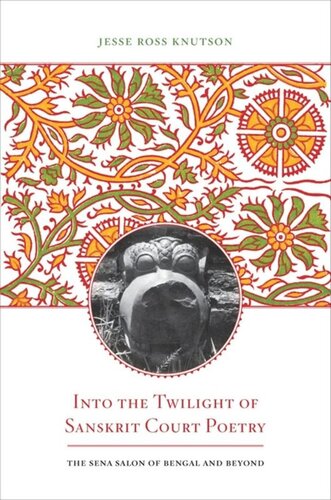

Most ebook files are in PDF format, so you can easily read them using various software such as Foxit Reader or directly on the Google Chrome browser.
Some ebook files are released by publishers in other formats such as .awz, .mobi, .epub, .fb2, etc. You may need to install specific software to read these formats on mobile/PC, such as Calibre.
Please read the tutorial at this link: https://ebookbell.com/faq
We offer FREE conversion to the popular formats you request; however, this may take some time. Therefore, right after payment, please email us, and we will try to provide the service as quickly as possible.
For some exceptional file formats or broken links (if any), please refrain from opening any disputes. Instead, email us first, and we will try to assist within a maximum of 6 hours.
EbookBell Team

0.0
0 reviewsAt the turn of the twelfth-century into the thirteenth, at the court of King Laksmanasena of Bengal, Sanskrit poetry showed profound and sudden changes: a new social scope made its definitive entrance into high literature. Courtly and pastoral, rural and urban, cosmopolitan and vernacular confronted each other in a commingling of high and low styles. A literary salon in what is now Bangladesh, at the eastern extreme of the nexus of regional courtly cultures that defined the age, seems to have implicitly reformulated its entire literary system in the context of the imminent breakdown of the old courtly world, as Turkish power expanded and redefined the landscape. Through close readings of a little-known corpus of texts from eastern India, this ambitious book demonstrates how a local and rural sensibility came to infuse the cosmopolitan language of Sanskrit, creating a regional literary idiom that would define the emergence of the Bengali language and its literary traditions.